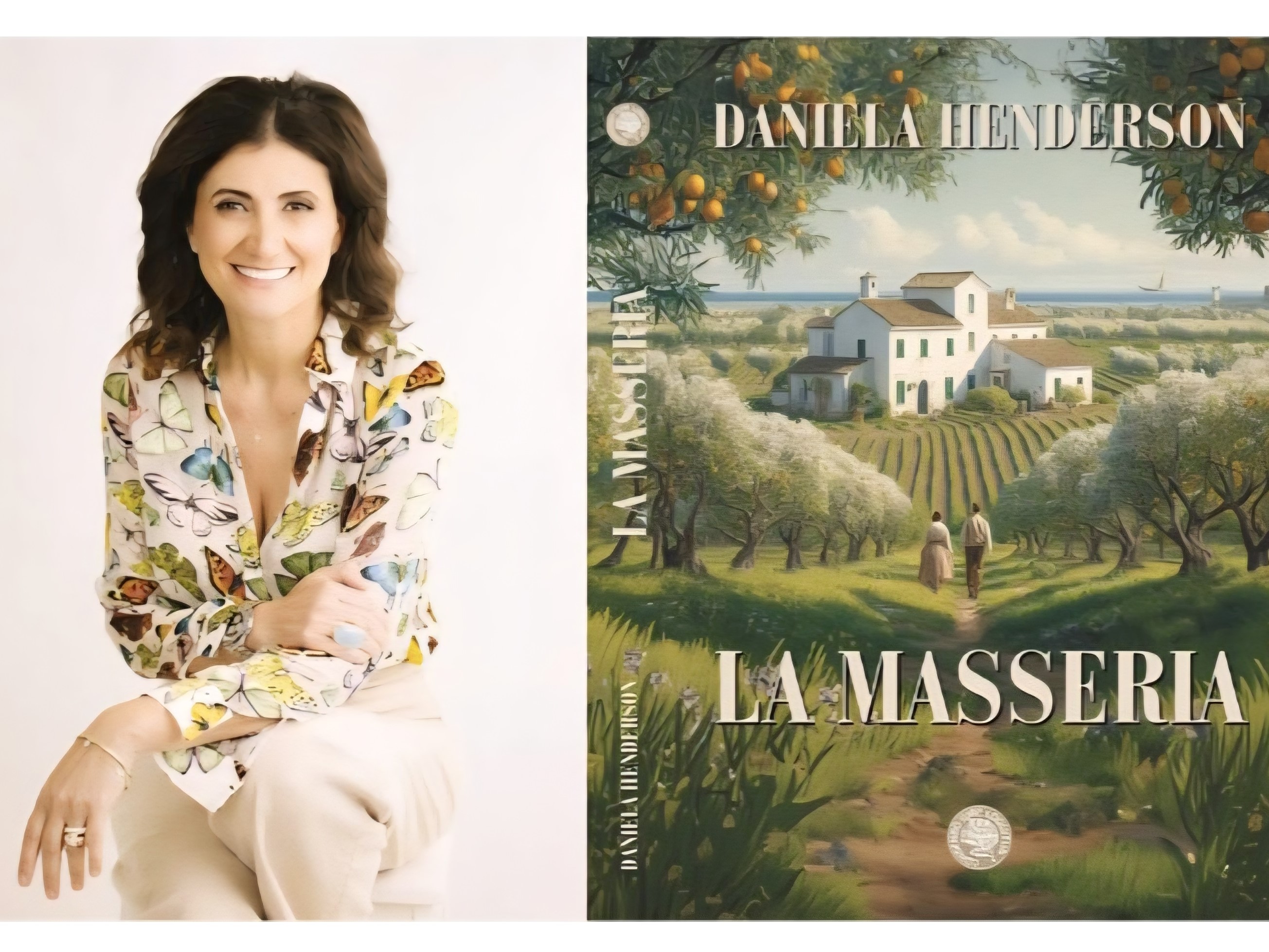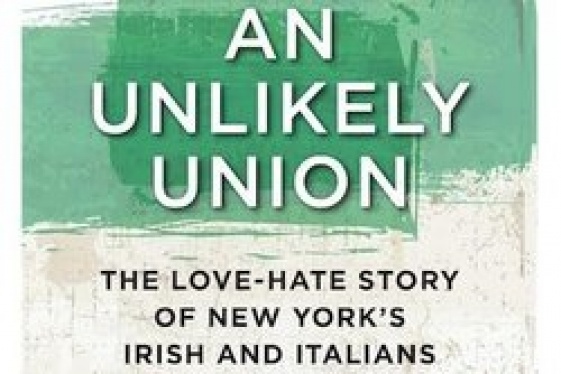

BY: Daniela D’Amico Henderson
Daniela D’Amico Henderson was born and raised in Castelli Romani, and has lived in Michigan for 25 years with her husband and three children. A teacher and volunteer at the Dante Alighieri Society of Michigan for more than eighteen years, as well as past president of the organization, Daniela is passionate about books and Italian culture.
La Masseria (Consenso Publishing) is her second novel, already highly regarded by readers. It is available on Amazon, at Consenso Publishing, and at www.danielahenderson.com Instagram: @danielahenderson (by Sandra Tornberg)
-------------------
“La Masseria stood majestic amidst the flat red earth, framed by centuries-old olive trees and the mountains of the Tavoliere delle Puglie. Summer was in full bloom, and cicadas filled the air with their song, pausing here and there to let a few moments of silence slip in.”
My novel is titled La Masseria, and it is much more than a simple work of fiction: it is a tribute to roots, to family memory, and to resilience. The inspiration to write it came from a real, tangible place, full of history and emotion: my grandmother’s house. After years of waiting, bureaucracy, and legal battles, my family finally succeeded in reclaiming it. To my grandmother, it was never just a house, but it was the soul of her childhood, echoing with laughter, prayers, and fear.
During World War II, the house was occupied by the Nazis: my grandmother’s family was forcibly evicted and threatened with death. It was a time when survival itself was an act of daily resistance. When the Allies reached the gates of Rome, the German soldiers retreated — but before fleeing, they set fire to everything in the house. They destroyed furniture, photographs, objects — every trace of the life that had grown within those walls.
The Americans, recognizing the house’s strategic value, asked my family if they could use it as a military base. In return, they rebuilt what had been destroyed and left behind something extraordinary for that time: the first telephone line in the village. They also gave sweet gifts — like American chocolate offered to my grandmother, a small gesture that, for her, symbolized greatness.
She would tell me this story like a mantra, almost like a prayer, to help me understand the importance of what she had preserved for the future. Every time I drove through the Pontine countryside, observing the abandoned and silent farmhouses, I would wonder: what stories do they hold? From this question, La Masseria was born. And surely, those walls hold countless stories.
The narrative style I adopted has been described as "simple and direct," but not without depth. One of the compliments that moved me most was a comparison to Elsa Morante, one of my greatest inspirations. Her ability to give voice to the inner lives of her characters while also portraying the historical and social context is a guiding light for me. La Masseria tells the story of our grandparents’ Italy, rooted in heritage, sacrifice, and silence. It is a story that moves between personal and collective memory.
I’m very pleased to share that some teachers in the United States have chosen to adopt my book as an educational tool, precisely because of its accessible style paired with a narrative rich in meaning.
This project took shape also thanks to the trust of Giuseppe Zangaro, who believed in my work and published it with the publishing house Consenso. The recognition the book has received reached a moving high point on October 16, 2024, when Senator Ernesto Rapani presented La Masseria at the Italian Senate.
Writing is a passion I’ve carried within me since I was a child. Reading has always been my refuge, and writing is my way of escaping. To those who dream of writing, my advice is simple: write. Always. Even when you don’t know where it will lead. Writing is an exercise — it must be practiced as much as possible.
I have many projects in the works. I’ve just completed a new manuscript — a very different story, this time true, but just as compelling — and I hope it will see the light soon. My greatest wish is to continue this path: to write stories that can touch the hearts of readers. Because writing is not the hard part; the true challenge is doing it with authenticity, and convincing the reader to follow you, page after page.
You may be interested
-
'Phantom Limb': A Conversation With Dennis...
Dennis Palumbo is a thriller writer and psychotherapist in private practice. He's the auth...
-
An Unlikely Union: The love-hate story of Ne...
Award-winning author and Brooklynite Paul Moses is back with a historic yet dazzling sto...
-
Former Montclair resident turns recipes into...
Former Montclair resident Linda Carman watched her father's dream roll off the presses thi...
-
''La Gente di Mulberry Street'' presentato a...
Valsinni- Italia, terra di emigranti. Presentato a Valsinni il nuovo saggio storico di Raf...
-
'An Unlikely Union' author Paul Moses on his...
by Ginger Adam Otis Any journalist who has ever been an author has lived through...
-
'An Unlikely Union': Paul Moses on the urban...
Few American cities, with the possible exception of Chicago, do urban ethnic drama like Ne...
-
'Augie’s War' novelist to appear at Elkins bo...
Charleston author and Gazette-Mail wine columnist John H. Brown will conduct a book readin...
-
'Ferrante Fever' Documentary: A Literary Phen...
It's generally accepted that, in order to achieve fame and fortune, one must be prepared t...










